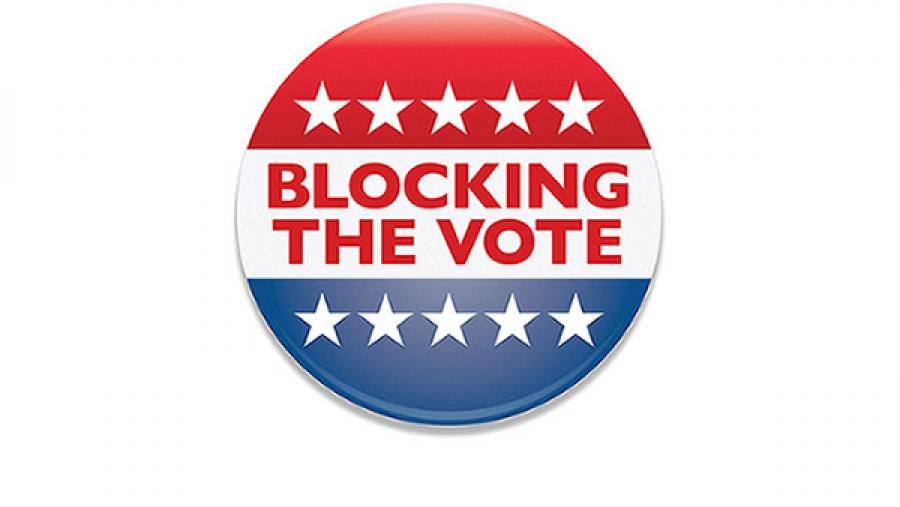Submitted by Brendan Fischer on

The U.S. Supreme Court has declined to strike down Wisconsin's Republican-backed voter ID restriction, paving the way for the law to take effect in upcoming elections.
The ruling is regarded as a victory for Governor Scott Walker, who championed the law in Wisconsin and has boasted about the state's voting restrictions as he makes the case for a presidential run. Walker defended voter ID during the 2014 gubernatorial race, declaring that "it doesn't matter" if there is only one incident of voter fraud in each election, even though as many as 300,000 Wisconsinites don't have the forms of ID required under the law.
Wisconsin's law was enacted in 2011, but was only applied in one low-turnout primary before being blocked by state and federal courts. With the U.S. Supreme Court's decision not to review an appellate court ruling upholding the law, voter ID is now slated to take effect in Wisconsin. Legal challenges to the law have reached the end of the line.
Here's how the reinstatement of voter ID restrictions will affect Wisconsinites.
- As many as 50 percent of black and Latino voters in Wisconsin could face disenfranchisement: In Wisconsin, only 53 percent of black adults and 52 percent of Latino adults have driver's licenses, according to a University of Wisconsin-Milwaukee study cited by federal and state courts, compared to 85 percent of white adults.
- The black youth vote is at greatest risk under the law: 78 percent of African-American young adult men aged 18-24 don't have driver's licenses in Wisconsin, according to that same study, as well as 66 percent of black young adult women.
- At least 300,000 registered voters in Wisconsin will be affected by the law's implementation: As many as 300,000 registered voters in Wisconsin don't have the forms of ID required under the law; for reference, this is 12.5 percent of the turnout in the 2014 elections, where an estimated 2.4 million Wisconsinites went to the polls.
- In-person voter fraud is effectively nonexistent in Wisconsin: The forms of voter fraud that could be prevented by a voter ID requirement don't occur at a statistically significant rate in Wisconsin. Federal Judge Lynn Adelman, who struck down the law in 2011, found that "virtually no voter impersonation occurs in Wisconsin and it is exceedingly unlikely that voter impersonation will become a problem in Wisconsin in the foreseeable future," since with criminal penalties a person would have to be "crazy" to engage in in-person voter fraud. In defending the law, Wisconsin's Republican-led justice department "could not point to a single instance of known voter impersonation occurring in Wisconsin at any time in the recent past," Adelman noted.
- Obtaining an ID before election day will be difficult: For many voters, the trouble of obtaining an ID for voting--even if it is free--will be difficult, and the burdens may not outweigh the benefits. Just one-third of the state's Department of Motor Vehicles offices are open full-time, and even then only during business hours. There is only one DMV office in the entire state open on Saturday. Because most voters who will need to obtain an ID don't drive, they will need to rely on public transport or get a ride, making it even more difficult to get to the DMV during the limited hours the offices are open. Last year, Walker and legislative Republicans declined to extend DMV hours, and refused to fund a new public education program to make voters aware of the new requirements to vote.
The law will likely be put on hold for next week's Wisconsin Supreme Court election, given the closeness of election day, yet is almost certain to be in effect for the 2016 presidential election.
Voter ID laws are most closely associated with the American Legislative Exchange Council (ALEC), whose founder Paul Weyrich famously said "I don't want everybody to vote . . . As a matter of fact, our leverage in the elections quite candidly goes up as the voting populace goes down." Voter ID laws swept the nation after ALEC re-adopted its "model" Voter ID Act in 2009, following the election of Barack Obama with record turnout from people of color and students and a 2008 Supreme Court ruling upholding Indiana's law. Scott Walker is an ALEC alumnus.

Comments
Raymond Smith replied on Permalink
No vote
arbitrary aardvark replied on Permalink
i have heard there's another suit to be filed shortly
Citizen replied on Permalink
Another complete waste of
Nik replied on Permalink
Voter ID LAWS
Jerry replied on Permalink
Wisconsin Voter ID Law
Russ replied on Permalink
Great Questions!
AS replied on Permalink
Not needed
AS replied on Permalink
Flights: the answer is, they
Stewart replied on Permalink
You need ID in this country - Get it!!